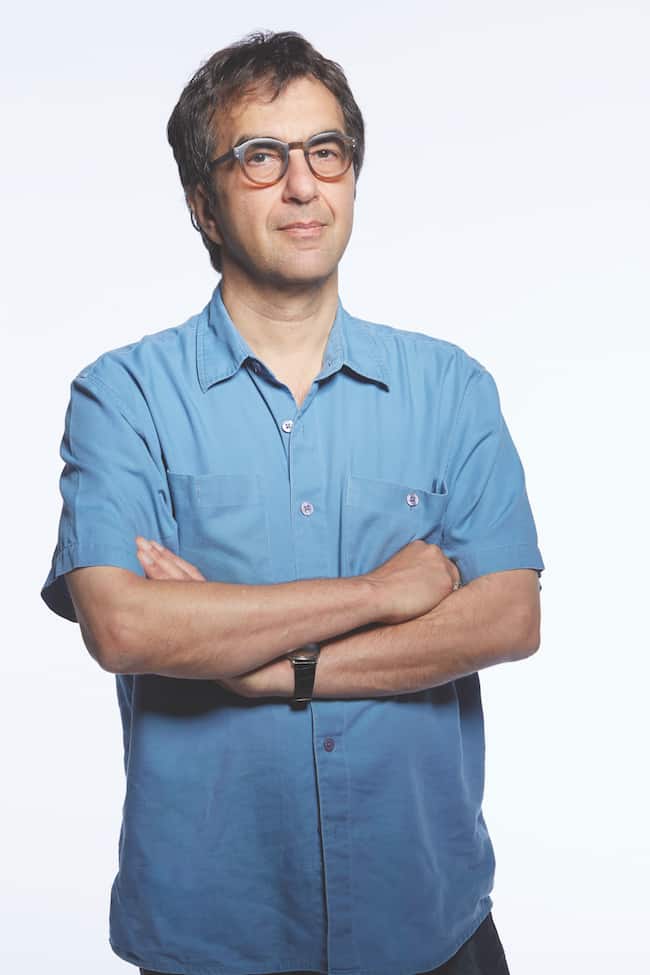[dropcap]S[/dropcap]uccess rarely comes as swiftly as anticipated. We are often lucky to be born with a single, marketable skill, and so it’s crucial to exploit what one is good at in order to thrive. Through years of multifaceted artistry, Canadian filmmaker Atom Egoyan has proven that integrating oneself in various avenues of the arts community is critical in one’s approach to earning success.
While Egoyan’s breakthrough came in 1994 with his sexually charged thriller Exotica, the Armenian-born director has practiced a diverse range of artistic modes over the span of his 55 years. It’s his dedication to honing his expertise in opera-writing, screenwriting, and installations that have recently earned him the Lifetime Artistic Achievement Award — an honour presented to the most esteemed and active participants within Canada’s arts community. Although filmmaking is where he has developed his most prominent reputation, Egoyan has resourcefully approached a variety of disciplines throughout his career and has been lauded in Hollywood and at film festivals alike. As an alumnus of U of T and former film editor for The Newspaper, his time at the university proved to be an instrumental incubation period that would eventually help further his career.
Egoyan was drawn to film during his time at university. His career started as many do: with a slight detour from its initial trajectory. After embarking on his first year at U of T, he “presented a play to Trinity College Drama Society, and they turned it down.” At the time, the theatre was the young playwright’s natural habitat. Having graduated from secondary schools with various theatric successes, Egoyan believed that his previous positive reception would seamlessly transition into the university setting. Unfortunately, he was mistaken, but this allowed him to spitefully walk across the street to Hart House and start a career in film instead.
Egoyan continued to write plays, but the moment he held his first camera he realized “it was [his] calling.” His first gig as a playwright-in-residence at the Tarragon Theatre meant that he could continue exercising the talent he initially wanted to pursue; however, by that point, he was “preset on making films.” His very first feature film, Next Of Kin, debuted in 1984. It was “a rich period” for Egoyan at U of T, and he “owe[s] a lot to the opportunities that came from there” when reflecting on where his career is today.
He notes that “films were not trendy at the time,” and that he and a “small cult of people at Hart House” were the only ones using the 16mm equipment (the industry standard at the time). The opportunities to express oneself through film were as equally limited as the aesthetic possibilities of cinema. Opportunities for filmmakers to hone their craft at an amateur level, such as Raindance on Campus or the 48 Hour Film Project, had insufficient demand to necessitate a supply from the university. Besides the Hart House Film Board, or the sparse number of courses taught in the Cinema Studies program, there “wasn’t an active interest [in] filmmaking, or decent filmmaking as there is now.” The lack of access to digital technology meant that aspiring filmmakers were “struggling with aesthetics, as opposed to what’s being done today.”
Although Egoyan is credited primarily as a director, he developed his technique through various elements of creating a film. According to Egoyan, the various “technicians” involved in creating a film have a unique language through which they address the elements of their craft. The music supervision and editing sector in filmmaking have a specific lexicon that differs from that of the director or the producer,making it difficult for the various departments in a large project to communicate and execute effectively. As a director and producer, his “early films where [he] was doing everything” taught him those basics. “Shooting… and cutting… on film, and doing the sound mix all in a very freezing cold editing room in Hart House.” As his projects grew in scale, it became crucial to delegate some of the work to an organization of people who shared the same vision. Now, he works closely with his composer, Mychael Danna, who he met at U of T and who scores all of his films.
When a filmmaker’s career is in its earliest days, it requires motivation and applause from audiences in order to flourish. But the masses can be difficult to convince, which is why the pursuit of filmmaking, according to Egoyan, is “different from writing a poem or song.” The incredible amount of dedication that such projects tend to necessitate often requires the filmmaker to pause, step back, and evaluate the story that’s about to be told. In the words of Egoyan, “you have to be determined that you have something worth telling.”
The trailer for Egoyan’s Chloe (2010):


